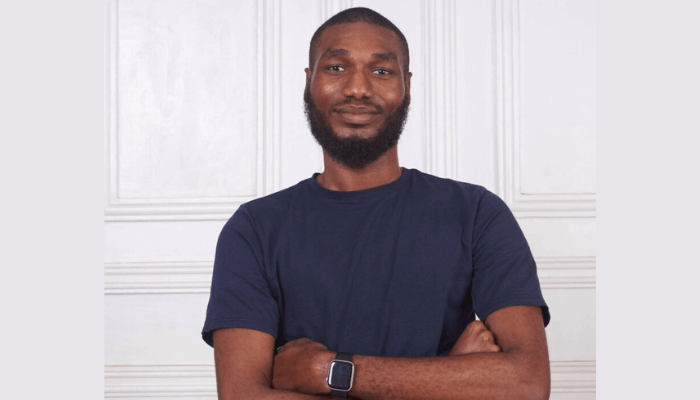Meet the Lagos technologist turning everyday pain points into life-changing solutions
In a small co-working space in Lagos, 27-year-old Charles Ayere is quietly reshaping how technology can be used to solve everyday African problems. His journey didn’t begin with code or computer science, in fact, he once believed tech wasn’t for him.
“I didn’t come from a science-focused background. For a long time, I thought building technology wasn’t something people like me could do. But I later realized innovation doesn’t require permission, it requires persistence,” Ayere tells BusinessDay.
That realization has since defined his mission, which is to building technology that responds to human pain points. Whether it is helping the visually impaired move safely or enabling young Africans to compete fairly in the job market, Ayere’s projects: EyeGuide and CitrusCV, are a testament to empathy-driven innovation.
From curiosity to creation
Charles Ayere’s path to tech started in university, where curiosity and courage collided. He began experimenting with software development and assistive tools, despite lacking a formal background in computer science. “What mattered wasn’t my degree. It was daring to start and believing I could build something that mattered,” he says.
That belief led to the birth of EyeGuide, a project that later win him the ‘Emerging AI & ML Innovator of the Year 2024 award.’
EyeGuide: Restoring confidence, not just sight
EyeGuide uses the iPhone’s LiDAR sensor and haptic feedback to help visually impaired users navigate safely. It scans the environment in real time, identifies obstacles, and translates spatial data into gentle vibrations or voice prompts.
“If you are approaching a wall or an obstacle, you will feel a vibration or hear a prompt. Everything happens on-device, no internet needed, so users’ data stays private and it works even in areas with poor connectivity,” Ayere explains.
The idea was born out of empathy. “A close friend of mine is visually impaired. Seeing how much effort it takes to move around inspired me to explore how tech could make independence possible again,” he recalls.
Ayere is now developing affordable smart glasses that integrate EyeGuide’s features, aiming to make assistive technology more accessible for people in low-income regions. “The goal is not to make fancy hardware, but to give people a sense of confidence and control,” he says.
CitrusCV: Leveling the job market With AI
When he is not working on assistive tech, Ayere’s attention turns to another challenge: unemployment. His second major project, CitrusCV, is an open-source AI résumé builder designed to help job seekers across Africa articulate their value effectively.
“Many talented people lose out on opportunities because they don’t know how to present themselves. CitrusCV analyzes job descriptions and helps users tailor their CVs automatically. It is like having a smart career assistant and it is free, open, and accessible to anyone,” Ayere says.
In a continent where youth unemployment remains high and job mismatch is common, tools like CitrusCV could help level the playing field. “AI should democratize opportunity. It should help people compete on skill, not on who they know,” he argues
Teaching the next generation to build With Empathy
Beyond his projects, Ayere mentors young developers through programs like Gomycode, GMI, and StepUp2Tech. His advice to aspiring technologists often cuts against the usual trend.
“Most young developers think success in tech is about knowing every framework or tool. But that is not what makes you valuable. Understanding problems does” he says.
For Ayere, mentorship is about creating a mindset shift, from code-focused to impact-focused. “If you can identify pain points that frustrate people and solve them creatively, you will always stay relevant,” he says.
Innovation with context
After his award win in 2024, Ayere says the recognition reaffirmed what he is always believed: innovation doesn’t have to be complex to be meaningful.
“EyeGuide and CitrusCV gained traction because they solved relatable, human problems using existing tech in creative ways. You don’t need massive resources, just context, empathy, and persistence,” he reflects.
Looking ahead, he is exploring new frontiers in AI for accessibility, including tools that work offline and recognize local accents for better inclusivity. “Ultimately, I just want to keep building products that restore agency, whether that is helping someone move freely, find a job, or feel seen,” he says,
For a technologist who once doubted his place in the field, Charles Ayere’s journey proves that real innovation isn’t born from privilege or pedigree, it is born from empathy, curiosity, and the courage to respond to pain with purpose.

